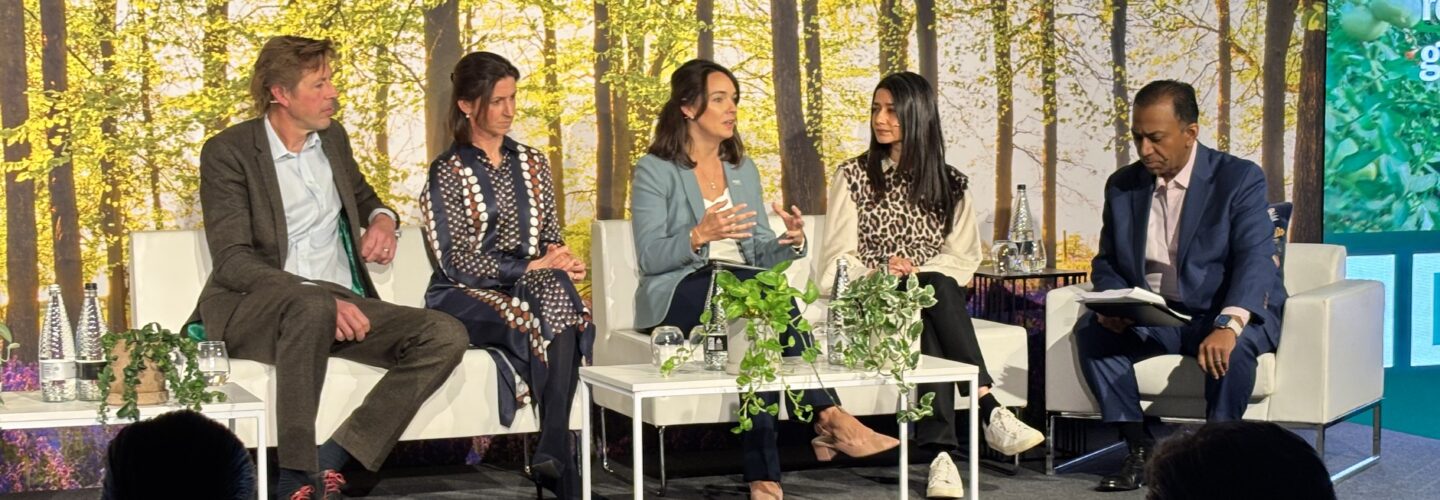
U.S. Soybean Farmers Champion Sustainability in Global Markets
As U.S. Soy’s international export markets face increasing sustainability challenges and food security concerns, U.S. soybean farmers partner closely with the U.S. Soybean Export Council (USSEC) to take a proactive approach—traveling across the globe to share their sustainable farming stories and connect how their practices benefit U.S. Soy customers worldwide.
Through their voluntary participation in key international events, U.S. soybean farmers have an important role in helping to shape discussions and forge new partnerships that reinforce the role of U.S. Soy in a sustainable global food system.
The Economist’s 10th Annual Sustainability Week: Advancing the U.S. Soy Brand
At The Economist’s 10th Annual Sustainability Week in March 2025, soybean farmers Meagan Kaiser of Missouri and Tony Mellenthin of Wisconsin joined USSEC staff for a prime platform to enhance the reputation of U.S. Soy, particularly in Europe. More than 1,500 participants included C-suite executives, business leaders, heads of sustainability, government, and academia.
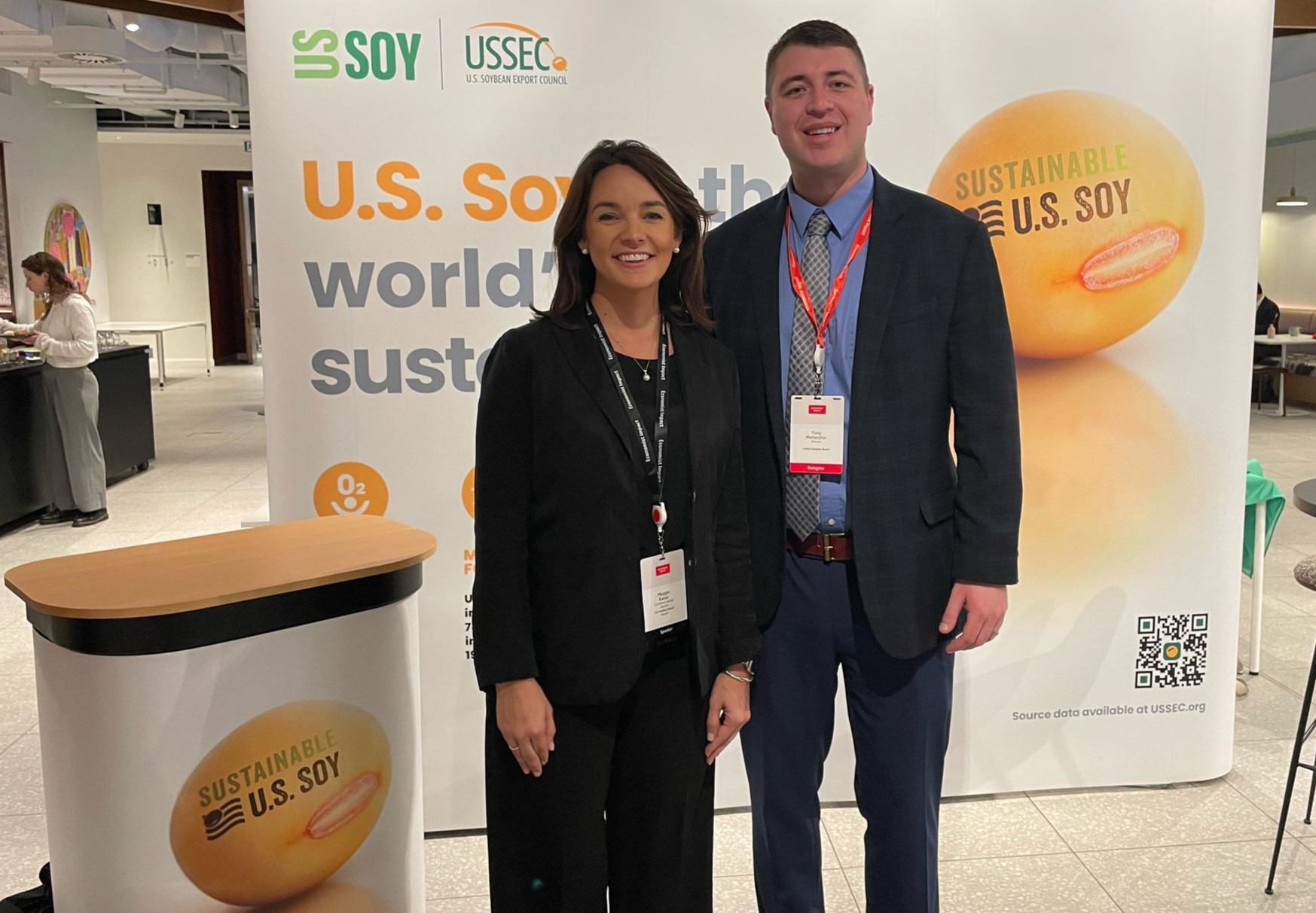
Key discussions focused on the role of agriculture in carbon sequestration, with panel leaders and experts emphasizing that agriculture is part of the solution, and that farmers are an essential part of the global economy.
“U.S. Soy farmers can often provide the solutions global customers are seeking to accomplish their sustainability goals,” Mellenthin, said. “With so few of the population actually engaged in production agriculture, no one can speak to this like the U.S. Soy farmer.”
During a session titled “Feeding the Future: Regenerative Agriculture for Global Food Security,” Meagan Kaiser underscored soy’s renewability and the importance of data-driven, precision agriculture.
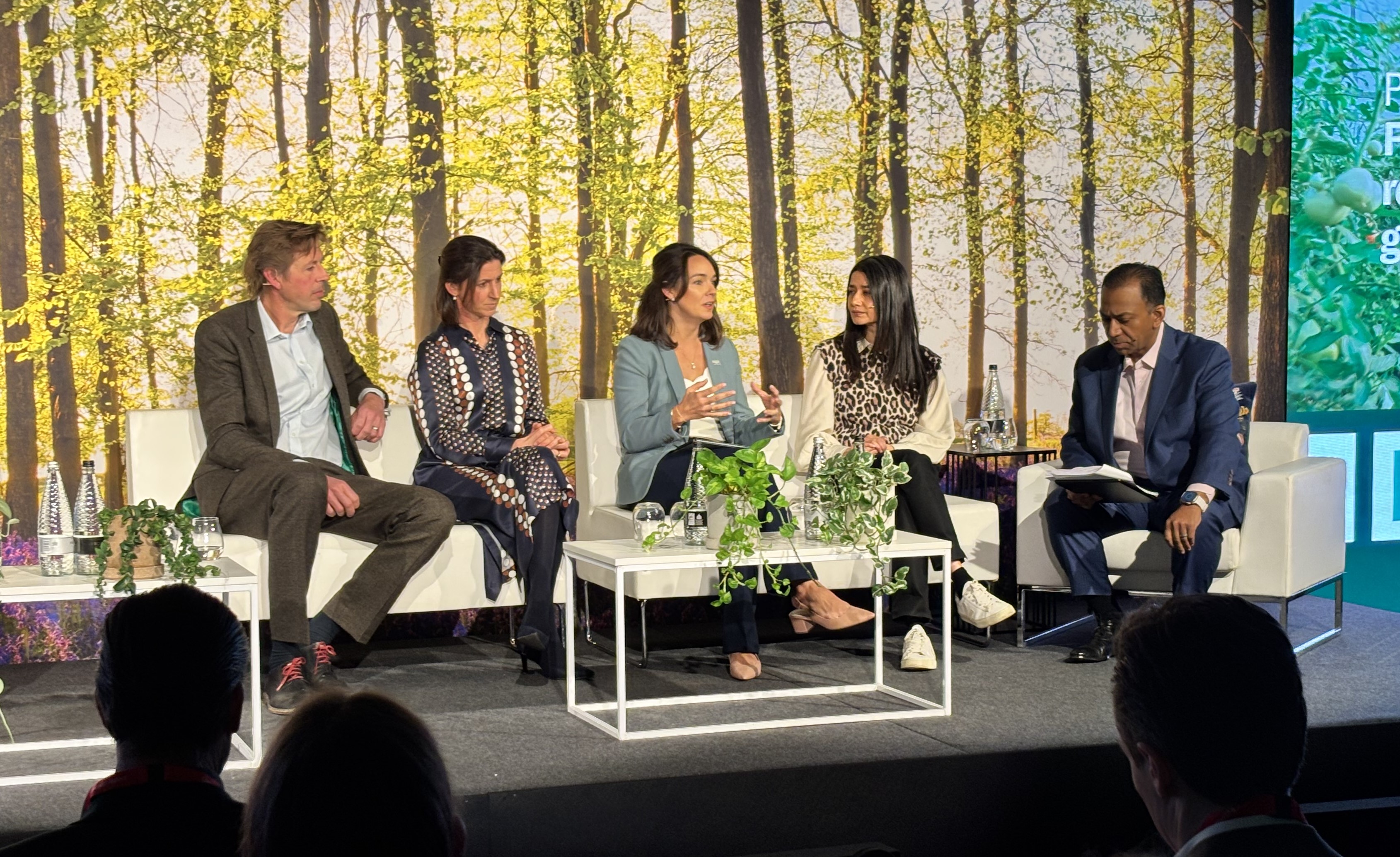
“We have soil maps on our phones. We like a challenge, and being regenerative is something that excites us,” she said.
One-on-one meetings with key players like Nestlé and Norsk Kylling, a Norwegian poultry company, allowed U.S. Soy representatives to engage directly with industry leaders seeking sustainable solutions for their supply chains. The meetings were another valuable opportunity to reinforce the commitment of U.S. soybean farmers to sustainable production practices.
U.S. Soy Americas Agribusiness Sustainability Conference: Expanding Sustainable Markets
The IV U.S. Soy Americas Agribusiness Sustainability Conference (SussCon), held in Guatemala in January 2025, served as a crucial forum for U.S. soybean farmers to connect with Latin American and Caribbean agribusinesses. The event brought together industry leaders, sustainability experts, and policy influencers to discuss sustainable markets, innovative solutions, and the policy implications of sustainability.
Ronnie Russell, a Missouri soybean farmer, and Gene Stoel, a Minnesota soybean farmer, were on hand for the annual event. Russell noted that soybean growers play a vital role at events like SussCon since they can speak directly about the sustainability practices on their own U.S. farms.
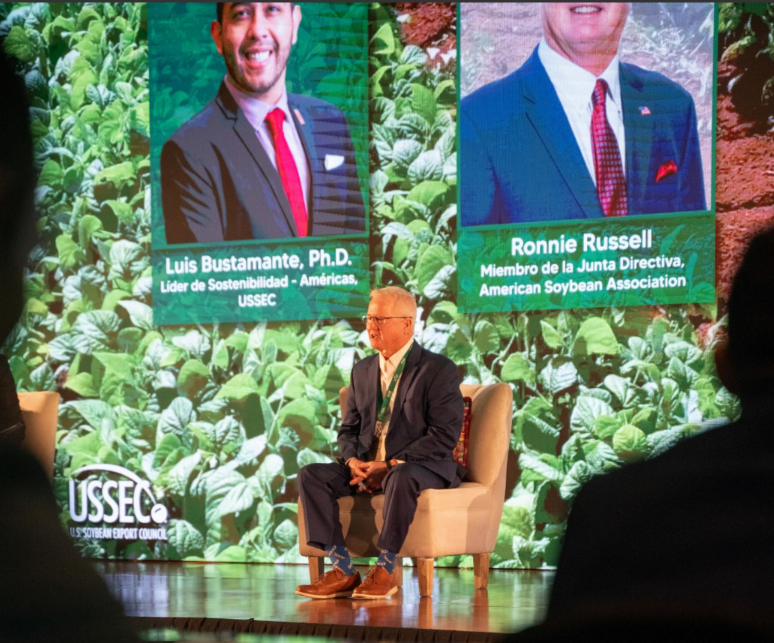
“I believe people want to hear from producers and what practices they are using on their own farming operations, and I received a number of questions,” he said.
In addition to participating in the “U.S. Soy Voices” panel, Russell and Stoel engaged in strategic industry meetings, and celebrated the achievements of 18 new companies incorporating the Sustainable U.S. Soy label. The event’s activities underscored the growing recognition of U.S. Soy’s role in fostering sustainable agribusiness in the Americas region.
COP29: Elevating Farmer Voices in Climate Discussions
At the 29th Conference of the Parties to the United Nations Framework Convention on Climate Change (COP29) held in Azerbaijan in November 2024, U.S. soybean farmers played a pivotal role in advocating for agriculture as a climate solution. Minnesota soybean farmer Gene Stoel and Arkansas soybean farmer Brad Doyle joined key panels on carbon farming, circular bioeconomy, and climate-smart solutions for smallholders.
Stoel said that his messages about the responsibility of farmers in protecting the land for future generations and putting carbon back in the soil were well received.
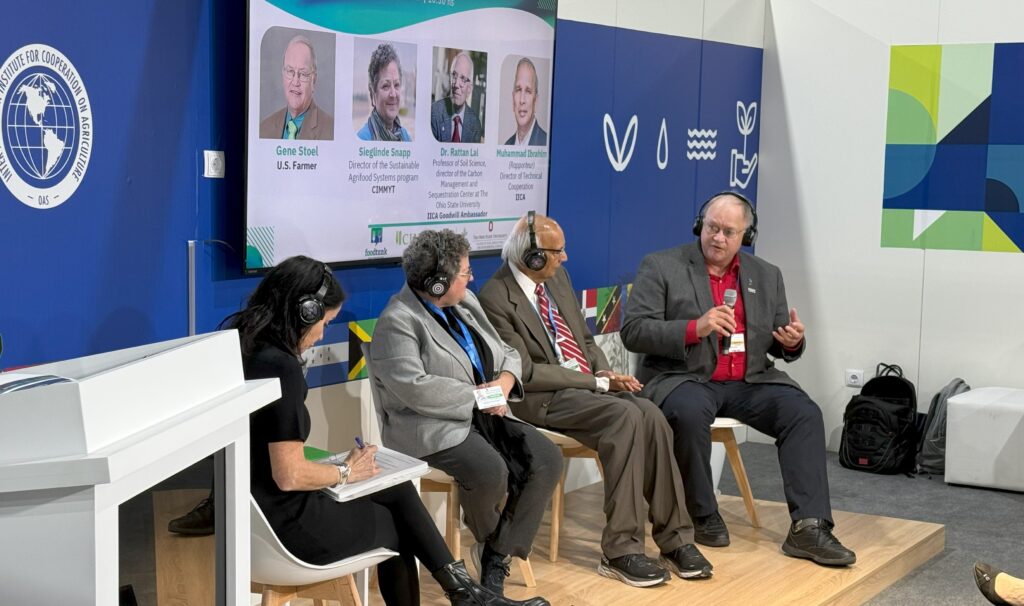
His participation in discussions with global agricultural leaders, including Belize’s Minister of Agriculture, provided valuable insights into sustainable practices worldwide. As COP30 approaches later this year in Brazil, Stoel anticipates an even greater focus on agriculture’s role in climate solutions.
“At the first few meetings, farmers were ignored, but I think we’re getting our voice now. The next conference will have a huge focus on agriculture.”
A Collaborative Commitment to Global Sustainability
U.S. Soy’s reputation as a sustainable choice is essential to international market growth, and U.S. Soy growers play an important role in reinforcing and elevating U.S. Soy’s sustainable advantages.
By working with USSEC to engage in high-profile events across multiple continents, farmers are ensuring their commitment to sustainability is communicated and valued worldwide.
###
This article is funded in part by the soy checkoff.